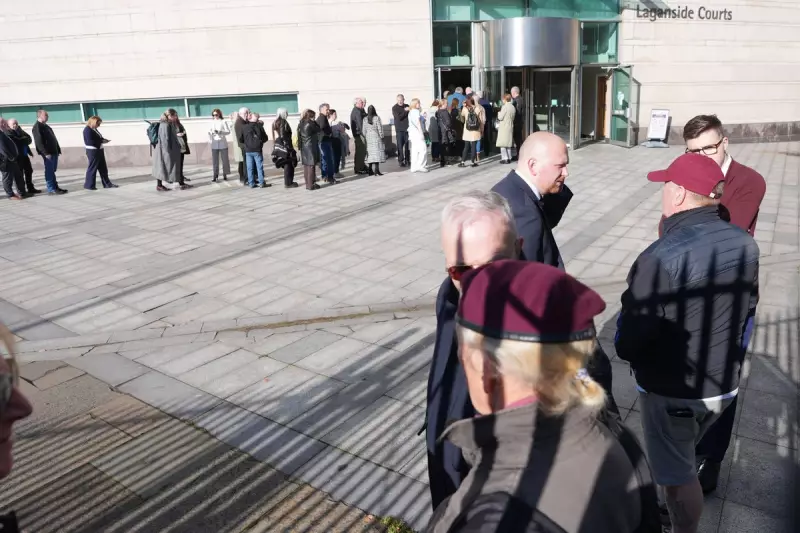
The British government is confronting dramatic new legal challenges over one of Northern Ireland's most contentious historical cases. Fresh allegations have emerged claiming Whitehall officials systematically concealed crucial evidence regarding the 1971 shooting of Michael McGuinness in Londonderry.
The Night That Reignited a Legal Battle
On November 15, 1971, 19-year-old Michael McGuinness was shot during a dramatic confrontation in the Creggan estate. The incident occurred when British soldiers from the elite Parachute Regiment pursued McGuinness into a house, resulting in a single gunshot wound to his upper body.
Official accounts maintained for decades stated that soldiers fired in self-defence after McGuinness allegedly pointed a rifle at them. However, new court documents reveal startling contradictions that challenge this narrative.
Hidden Evidence Comes to Light
Recently uncovered documents suggest government authorities may have deliberately suppressed witness statements and forensic evidence that contradicted the official version of events. One particularly damning revelation indicates that multiple eyewitnesses reported hearing only a single shot fired - directly challenging initial military reports.
The legal team representing the McGuinness family argues that this constitutes a systematic cover-up reaching the highest levels of government. They claim the withheld evidence could have fundamentally altered historical understanding of the incident.
A Pattern of Controversy
This case emerges against the backdrop of other controversial shootings involving the Parachute Regiment in Northern Ireland, including the infamous Bloody Sunday incident just months after McGuinness's shooting. The timing and circumstances have led historians and legal experts to question whether there was an established pattern of behaviour.
The Ministry of Defence continues to maintain its position that the shooting was justified, stating soldiers acted appropriately given the perceived threat. However, they now face increasing pressure to release classified documents from the period.
Legal Proceedings and Historical Reckoning
The current legal action represents more than just a historical inquiry - it has become a symbol of the ongoing struggle for accountability in Northern Ireland's troubled past. The case is being closely watched by human rights organizations and historical researchers alike.
As the judicial review progresses, it threatens to unearth long-buried secrets about the British government's handling of sensitive operations during the Troubles. The outcome could set important precedents for how other historical cases from this turbulent period are addressed.
With emotions still running high in Londonderry and across Northern Ireland, this legal battle represents another chapter in the long and painful process of confronting the region's difficult history.





